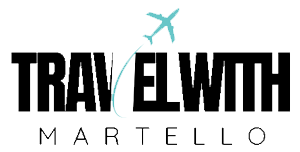Sri Lanka is officially known as “The Democratic Socialist Republic of Sri Lanka”.It is an island country in the Indian Ocean of the southern coast of the Indian subcontinent in South Asia. It was known as Tambapanni, Sihaladeepa, Taprobane, Serendib, Seylan, etc… in the ancient times and until 1972 as Ceylon.Its documented history spans 3,000 years, with evidence of pre-historic human settlements dating back to at least 125,000 years.Its geographic location and deep harbours made it of great strategic importance from the time of the ancient Silk Road through to World War II. Sri Lanka also has tremendous natural treasures, cultural and ethnic diversity, as well as a long and distinguished history enriched by centuries of foreign influence. The Portuguese, Dutch and British have all left their marks here, making for a delightful mix of ancient cities, monuments and grand colonial architectures.
Sri Lanka is a republic and a unitary state governed by a presidential system. The legislative capital, Sri Jayawardenepura Kotte, is a suburb of the commercial capital and largest city, Colombo. An important producer of tea, coffee, gemstones, coconuts, rubber, and the native cinnamon, the island contains tropical forests and diverse landscapes with much biodiversity. Sri Lanka has had a long history of international engagement, as a founding member of the South Asian Association for Regional Cooperation (SAARC), and a member of the United Nations, the Commonwealth of Nations, the G77, and the Non-Aligned Movement. It is the only country in South Asia that is currently rated “high” on the Human Development Index
Sri Lanka is itself enriched with natural resources such as, world heritage sites, beaches, wild life, hills, waterfalls, etc… within the 65,610 km2 geographical area and we are experiencing different weathers in different zones and two monsoon rains (North-East Monsoon and South-West Monsoon) throughout the year.
General Information
- Sri Lanka is a multi-cultural country with different ethnic groups. Therefore we value and respect all the religions equally and we do not accept any behaviours which may cause to racism.
- Illegal acts such as drugs, child abuse, prostitution, possessing weapons are punishable offense and Vacasia Lanka is not responsible for any criminal offenses.
- Wild animals and their parts, Flora and Fauna, coral, shells and protected marine products are banned from exporting.
- According to Sri Lanka law, all the liquor shops are closed and not permissible to sell alcoholic beverages on religious festival days and full moon poya days.
- The currency of Sri Lanka is the Rupee and is available in coins and notes. Master Card and Visa Card are widely accepted in all the cities and ATMs (Automated Teller Machines) are placed to dispense cash in all the major cities. Travellers Cheques are not acceptable and International Currencies such as US Dollars, Euro, UK Pounds can be used instead of Sri Lankan rupees.
- We recommended the use of bottled water for drinking which is safe to drink rather than tap water. However, you may drink tap water but it is not 100% safe. So the best practice for tourists is to avoid drinking water from the main utility while your stay in Sri Lanka. Also we recommend taking the advice of your tour guide for visiting recommended restaurants serving hygienic foods.
- Electrical voltage in Sri Lanka normally is between 220 V and 240 V. Electrical frequency is 50 Hz.
- Tipping is normal in the hospitality industry. Sri Lankan hospitality is unlike others and if you are satisfied with service that you have experienced, you may give tips in order to express your appreciation. In order to get to know the details with regard to tipping, kindly check with your respective guide.
